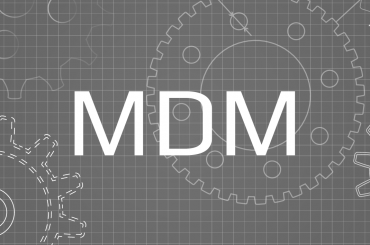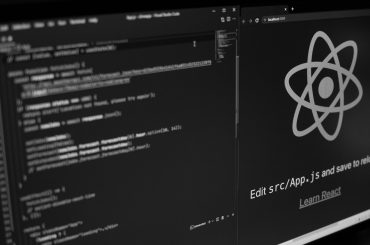What is Deno?
As an alternative to the well-known NodeJS, Deno is a contemporary Javascript runtime environment. Deno was developed by the same person who developed NodeJS, Ryan Dahl. The goal of the project is to solve some of Node’s shortcomings that have emerged in the thirteen years after its release.
Deno is more in line with current coding requirements. Decentralized package management is available, TypeScript and WebAssembly support are built-in, and security is given priority. Unless you specifically allow it, Deno runs code in a sandbox without access to the file system or the network.
NodeJS is fantastic and will remain the de facto standard in the JavaScript community. However, because of Deno’s superior TypeScript support and cutting-edge standard library, it will eventually gain popularity.
Some of DenoJS’s distinctive qualities that set it apart from NodeJS are as follows:
- Deno is based on modern features of the JavaScript language
- The feature has an extensive standard library
- It has TypeScript at its core, which brings a huge advantage in many different ways, including first-class TypeScript support (you don’t have to separately compile TypeScript, it’s automatically done by Deno)
- Deno embraces ES modules
- No package manager
- First-class await
- It has a built-in testing facility
- Deno aims to be browser-compatible as much as it can, for example by providing a built-in fetch and the global window object
A little bit on NodeJS
NodeJS was created to handle asynchronous requests to the web server. For instance, NodeJS handles opening files by sending them to the file system and quickly returning them to work.
After the file system responds to earlier queries, servers merely send responses (in this case, the file’s contents) to clients. As a result, NodeJS uses less memory and handles requests more quickly.
NodeJS is also capable of gathering form data, producing dynamic pages, and carrying out all server-side file actions including opening, closing, reading, writing, and deleting as well as adding, removing, or updating database data.
A better version of NodeJS, Deno, was created to take care of NodeJS’ deficiencies. It enhances the security of JavaScript runtime environments.
Check out our NodeJS-specific solutions here.
Deno vs NodeJS: Similarities and differences
The most used JavaScript runtime outside of web browsers is NodeJS. Because of its widespread use, you can access a top-notch community of knowledgeable developers. Built on npm, the NodeJS package ecosystem is extensive and simple to maintain. This implies that Node is frequently the best option if compatibility and familiarity are your main considerations.
However, Node hasn’t gotten everything right. Deno makes advancements in a number of crucial areas, especially those related to security and standards compliance. Because Deno is a single binary, it is more portable than Node, and the open-ended module architecture may become the standard for dependent imports in the future.
The only similarities between them are that they both are developed upon the V8 Chromium Engine and Both are great for developing server-side with Javascript.
On the other hand, DenoJS stands apart from the NodeJS in following ways:
Typescript support:
The TypeScript language extends JavaScript by enabling customers to provide type data. By using a TypeScript compiler with caching techniques, Deno comes with TypeScript out of the box.
Permissions:
In addition to supporting JavaScript and TypeScript, Deno is known for its secure runtimes. The permissions system plays a part in maintaining security. Deno allows the following permissions list:
- –allow-env=<allow-env> – allows all environment access like getting and setting of environment variables.
- –allow-hrtime – measures time with high resolution.
- –allow-net=<allow-net> – allows network access.
- –allow-ffi – allows you to load dynamic libraries, it does not have the same security reasons as others since it does not run in sandbox. Use with caution because it is an unstable feature.
- –allow-read=<allow-read> – Read access to the file system is allowed. To provide an allow-list of files and directories you can specify a comma-separated list.
- –allow-run=<allow-run> – Running subprocesses is allowed. The Deno 1.9 release adds the ability to specify an optional, comma-separated list of subprocesses to be allowed. In contrast to the Deno process, subprocesses are not run in a sandbox and therefore have fewer security restrictions.
- –allow-write=<allow-write> – Write access to the file system is allowed. To provide an allow-list of permitted file system access, you can specify a comma-separated list of directories or files
- -A, –allow-all – Allow all permissions. This enables all security-sensitive functions. Use with caution.
Browser Compatibility:
Browser compatibility makes it easy for developers to build applications that can be run in both the browser and Deno.
As much as possible, Deno will use web platform APIs (such as fetch) instead of introducing proprietary APIs wherever possible.
Deno implements the following web platform APIs:
Fetch API: The fetch API provides an interface that allows you to make HTTP requests to servers from web browsers. It requires only one parameter, the URL of the resource that you want to fetch.
Web Worker API: In web applications, Web Workers enable script execution in a background thread separate from the main execution thread.
Standard Library:
Among Deno’s features is a large standard library of modules evaluated by the core development team. There are no external dependencies on any of the modules in the standard library.
The Deno standard library provides a set of modules that are used for a variety of tasks, including:
- Making HTTP requests for Deno
- Working with the file system
- Prints formatted output with helpers
- Test and benchmarking your code using basic utilities.
- Helpers are included for handling XML, CSV, base64, YAML, and binary files
Installing Deno:
Deno is delivered as a single executable that bundles all of its own dependencies. Direct downloads or the majority of well-liked package managers are options for Windows, macOS, and Linux users.
-The installation script is the simplest route to get Deno running on Mac and Linux systems:
$ curl -fsSL https://deno.land/install.sh | sh
This will install Deno to the .deno folder inside your home directory. Add this location to your PATH so you can use the deno command without specifying the full path to your binary. Edit your ~/.bashrc (or equivalent for your shell) and add the following lines at the bottom:
export DENO_INSTALL="$HOME/.deno"
export PATH="$PATH:$DENO_INSTALL/bin"
-Open a new shell window and try the deno command:
$ deno
Deno 1.24.2
exit using ctrl+d or close()
>-You’ll be dropped into an interactive REPL where you can run JavaScript code:
> console.log("Hello World");
Hello World
undefined-Exit the REPL by pressing Ctrl+D or calling close():
> close()
You can run an existing JavaScript file with the deno run command:
$ echo "console.log('Hello World');" > hello.js
$ deno run hello.js
Hello WorldFollow this guide to know more about DenoJS installation procedures and other processes.
The bigger picture:
Why Deno? Are the problems with NodeJS so big that we need a new system? Well, no. Many people won’t even consider them to be problems, but there is a central idea behind Deno that makes its existence reasonable and design choices understandable:
Node deviates significantly from the browser’s way of doing things.
For instance, the browser will ask the user for permission when a website requests the right to capture audio. NodeJS did not have these kinds of permissions, but Deno reinstates them.
Even with the implementational specifics, this is the overarching theme. In order to reduce friction while transferring libraries from the front-end to the back-end or vice versa, DenoJS aims to be as near to the browser as possible. The status of the application as it was in Node has a significant impact on the overall picture, but Deno makes sure that the application has all the pertinent data required for application deployment.
Should you learn DenoJS?
Well, maybe, and maybe not.
Deno may be a better option for new apps that don’t need to communicate with a lot of existing code. It is a production-ready technology with a comprehensive set of integrated development tools and a large standard library to support it. With Deno, you can develop the functionality of your application more quickly by utilizing tools like TypeScript while reusing a larger amount of your work across many platforms.
Then what’s holding Deno back? Although Deno’s community is active, it is still quite small. Deno-specific packages are quite rare, and the NodeJS compatibility layer isn’t always reliable. This could leave you at a disadvantage if you want to use a particular library or if you need some support.
Deno will get better with time as it gets more and more compatible with NodeJS. So until then, keep an eye out.
Conclusion:
To put it mildly, Deno is an interesting project. We only have the initial stable version, and there is still much work to be done. For instance, they are working diligently to enhance the TypeScript compiler’s performance. In addition, the ‘—unstable’ parameter hides many APIs. The upcoming releases could alter these. Deno is a project worth following because of the principles like TypeScript’s first modules that work in browsers.
Before you go
Deqode’s unmatched Managed IT Services helps you develop web and mobile applications seamlessly. Visit deqode.com to know more about our industry-specific solutions and services.
Follow deqodesolutions on Linkedin to be updated about the latest developments.
FAQs
Q. How is Deno different from NodeJS?
A. Deno is an effort to redesign Node to take advantage of JavaScript advancements made since 2009, such as the TypeScript compiler. It has the TypeScript compiler built-in, unlike Node, in its executable image.
Q. What are the benefits of using Deno?
A. Among many discussed in the blog, When compared to Node, Deno clearly distinguishes out as a single executable. You may simply bundle Deno with programs because of the single executable’s small size footprint.
Q. Is Deno ready for production?
A. Deno is simple to package for production thanks to its single executable and available Docker Images. Even if the Docker images were not published, a straightforward Dockerfile based on debian:slim with an installation script will run your code without any issue.





